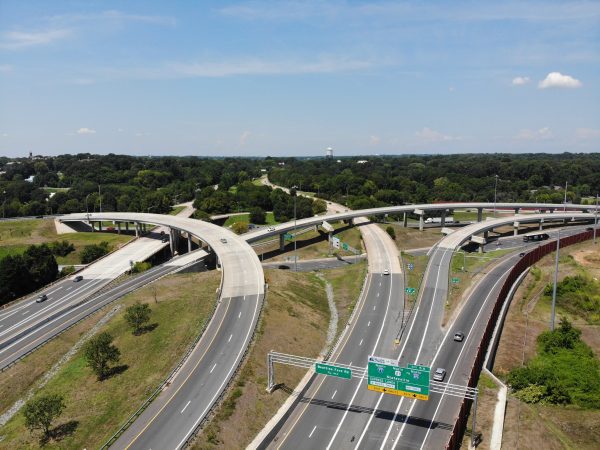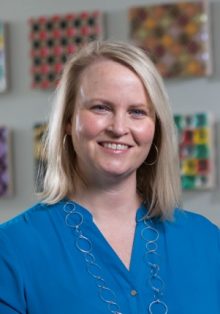Seeking a new path: Announcing the third Gambrell Faculty Fellows cohort


Our Charlotte region continues to wrestle with a vexing challenge: How can we improve economic mobility so that all of our community members can share the benefits of growth?
It’s a big question, one that touches on everything from the justice system to the transit system, how much we make at our jobs to how much our housing costs, past racist housing policies to present segregated schools. For a third year, a new cohort of Gambrell Faculty Fellows will work with the UNC Charlotte Urban Institute to address some of these questions.
The Gambrell Faculty Fellows program grew out of the 2018 Charlotte Opportunity Insights Partnership, also funded by The Gambrell Foundation. We designed the Fellows program to incorporate and build local research capacity to address issues related to economic mobility in Charlotte, facilitate research on economic mobility and give our community access to that work. In 2019, The Gambrell Foundation awarded a second grant to the Urban Institute to extend and build the fellowship program.
When this program started, the world looked different. We launched our first cohort of scholars in 2019, before the COVID-19 pandemic that shut down much of the world and took millions of lives; before the national reckoning on racial injustice touched off by the killing of George Floyd and too many other Black people; and before the political unrest that followed the 2020 elections and left many concerned about the foundations of our democracy.
But in too many ways, both our world and the challenges we’re facing in Charlotte still look familiar. Looking back on the first two cohorts of Gambrell Faculty Fellows, we’re still confronting the same issues those scholars are studying: Housing insecurity, access to good jobs, the criminal justice system, transit and gentrification. And in some ways, those issues have become more critical than ever. Housing is more expensive, homelessness is up, COVID widened the racial achievement gaps between students at different schools, and the pandemic-induced recession laid bare the inequity baked into our economy.
These issues now stand out more urgently than ever in Charlotte, demanding honest assessment and effective solutions. Our new Gambrell Faculty Fellows are studying four key challenges or opportunities facing Charlotte and our broader region:
-
Employee ownership as a tool for reducing the racial wealth gap
The racial wealth gap is enormous — much bigger than differences in income — and driven by historical inequality and practices like redlining and housing segregation. White families, on average, have 10 times the wealth of Black families, and eight times the wealth of Latinx families. Dr. Matthew Metzgar and Dr. Mark Dehaven will study whether employee ownership — a business structure in which workers own a share of the businesses at which they’re employed — could help close that racial wealth gap by giving more diverse groups of employees a meaningful, durable asset and a pathway to greater wealth accumulation. -
Searching for stability: The pandemic’s impact on Black women and their families in Charlotte
It’s been said many times during the past 18 months that while we’re all in the same storm, we’re not in the same boat. The pandemic shook our worlds unequally, with the greatest impacts in health, housing, education, and economic stability often falling on already marginalized groups. Dr. Kendra Jason, Dr. Tehia Starker Glass, and Dr. Janaka Bowman Lewis, a team of three self-described “mother-scholars,” plans to follow housing-insecure families headed by Black women, in partnership with a community liaison who specializes in transient populations. They will seek to understand the women’s experiences, lift up their resilience, and examine policies that can help provide stability, security, and equity. -
Bridging the digital divide in Charlotte
The pandemic also laid bare the fragmented ways economically marginalized families access the internet and digital platforms that provide everything from public education to vaccines. Dr. Ming Chun-Lee will inventory the existing resources in our community and seek to develop and evaluate a mobile community technology platform that pulls together the many, yet often uncoordinated, resources around digital access and digital literacy that have emerged to address the digital divide. -
Building a more responsive, connected transit system
Accessible and timely transportation is necessary for accessing jobs, schools, medical care, food and quality of life. Yet many of the families and workers that rely on our bus system face an average one-way commute of 90 minutes, caused in part by demand-supply gap. Dr. Mona Azarbayjani and Dr. Hamed Tabkhivayghan will complete a pilot study that uses customer and resident feedback, existing data on the Sprinter Line between Uptown Charlotte and the airport, and AI technologies to examine the feasibility of transforming Charlotte’s public transportation into an interactive, smart, connected, demand-responsive system.
These eight scholars join a community of 21 Gambrell Faculty Fellows examining the many ways our Charlotte region can understand and address economic mobility. Charlotte isn’t unique in its struggle to improve economic mobility. We face many of the same problems and gaps faced by communities across the nation.
But we also have opportunities before us that are unique and hopeful — like a booming local economy and resources like The Gambrell Foundation and the deeply engaged scholars at UNC Charlotte — that can be used to help us understand and overcome these challenges.